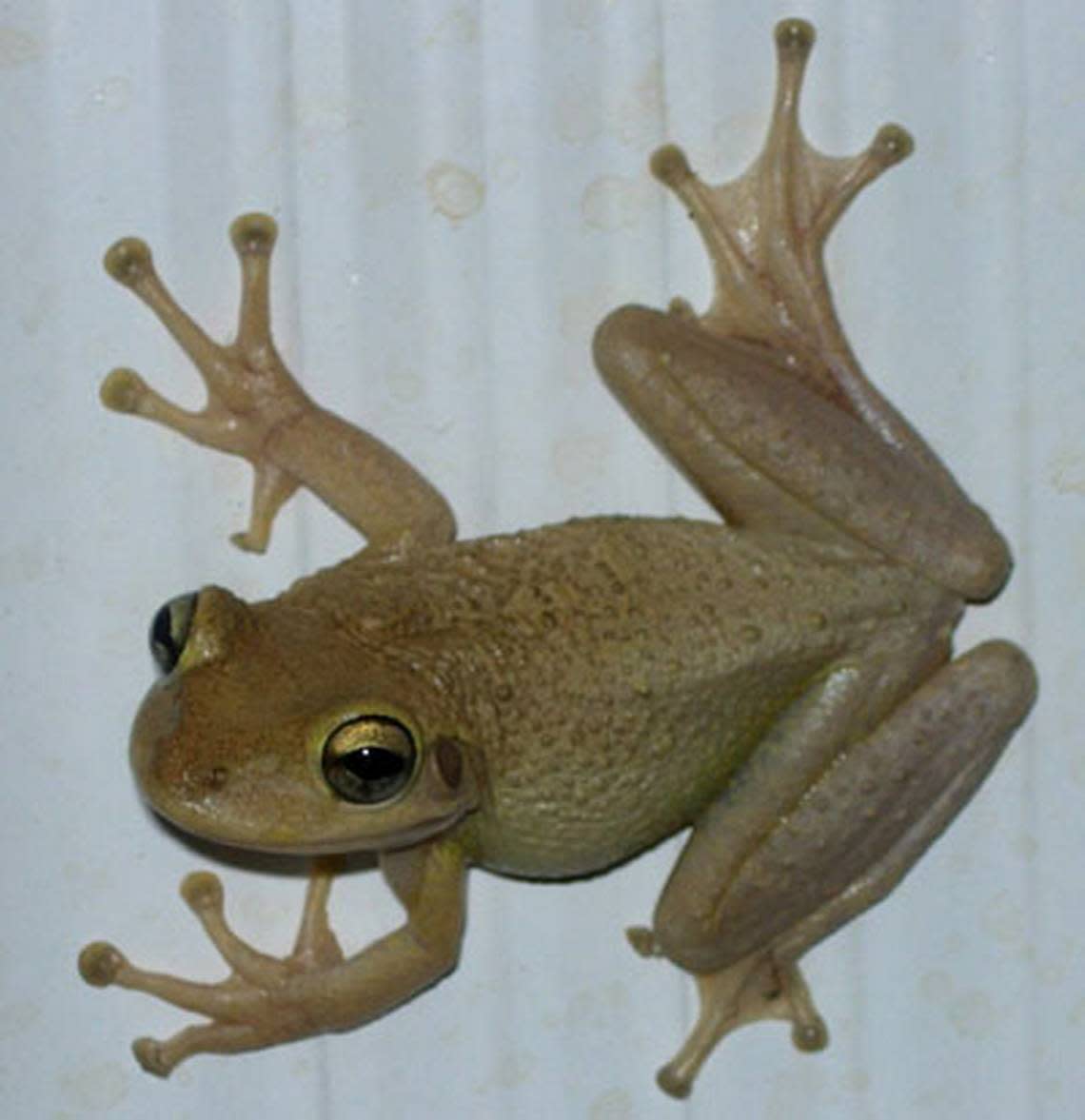Invasive tree frogs the size of a fist are hopping around SC. Here’s why they’re dangerous

As if lizards the size of dogs weren’t enough of a problem, now comes cannibal tree frogs the size of fists.
Called Cuban tree frogs, they are originally from the Caribbean and were introduced in the 1920s in Florida, where they are threatening native and much smaller tree frogs and other species that provide food for birds.
Biologists say the Cuban tree frog will eat anything it can fit in its mouth.
Andrew Grosse, a herpetologist with the South Carolina Department of Natural Resources, said the agency has found several of the frogs along the coast and slightly inland.
But there is no evidence they are reproducing.
“I think the majority of frogs are coming in as hitchhikers on landscaping and vehicles from out of state,” he said.
Biologists say such hitchhiking is responsible for the frogs ending up in Georgia and North Carolina as well. The frogs are able to thrive due to climate change. Previously, hard freezes kept them primarily in southern Florida.
The Georgia Department of Natural Resources reported recently that the frogs are breeding in retention ponds and ditches in Savannah and Brunswick.
Alex Baecher, a research assistant and doctoral student at the University of Florida told Florida Today that the frogs are in the top 10 of harmful invasive species that live on land in the state.
And they prefer urban and suburban environments.
That means if the creature gets a toehold in South Carolina it can affect more than native species.
“When threatened they secrete a mucus that can irritate the eyes, nose, mouth and skin of people and pets,” Grosse said.
Also, they can clog drains, lay eggs in pools and ponds, take over nesting boxes and get into transformers and electrical switches, causing power outages.
Florida Today reported they can even get into wind chimes.
South Carolina biologists are dealing with the lizards the size of dogs — Tegus— that have been found across the state and are breeding.
They are wreaking havoc on the state’s native species: eggs of ground-nesting birds such as quail and turkeys; alligators and gopher tortoises, chicken eggs, fruit, vegetables, plants, pet food, carrion and small live animals, from grasshoppers to young gopher tortoises.
They, too, will eat pretty much everything.
They didn’t come by car, but, intentionally as pets. Then as they grew people let them go.
It’s now illegal to have them, except for the pets who were here before the law was passed in 2021. The law requires Tegu pets to be microchipped. Gross said in 2023, nine Tegu were found dead.
He thinks the state has not reached the threshold of invasiveness. The state’s efforts, especially with the new law, indicate they have a handle on the problem.

